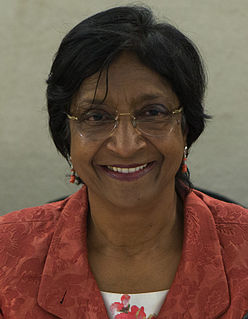A Quote by Peter Maurer
What the hell is happening to the world when those who were at the origin of... international humanitarian law start questioning in public debates whether it has any relevance or should be respected?
Related Quotes
It is a moot question whether the origin of any kind of property is derived from nature at all. It is agreed by those who have seriously considered the subject that no individual has, of natural right, a separate property in an acre of land, for instance. By a universal law, indeed, whatever, whether fixed or movable, belongs to all men equally and in common is the property for the moment of him who occupies it; but when he relinquishes the occupation, the property goes with it. Stable ownership is the gift of social law, and is given late in the progress of society.
The problem with the United States is that it is making an increased use of drones/Predators [which are] particularly prominently used now in relation to Pakistan and Afghanistan...My concern is that drones/Predators are being operated in a framework which may well violate international humanitarian law and international human rights law.
When an individual is taken into custody or otherwise deprived of his freedom by the authorities in any significant way and is subjected to questioning... He must be warned prior to any questioning that he has the right to remain silent, that anything he says can be used against him in a court of law, that he has the right to the presence of an attorney, and that, if he cannot afford an attorney one will be appointed for him prior to any questioning if he so desires.
From Iraq to Guantanamo Bay, international standards and the framework of international law are being given less when they should be given more importance. I am pleased that the courts in the United States are beginning to review what has happened to those detained in Guantanamo Bay. Similarly in Iraq we need to bring our strategies back within the framework of international norms and law.
In the statement accompanying the text of Lahore Conspiracy Case Ordinance, the Viceroy had stated that the accused in this case were trying to bring both law and justice into contempt. The situation afforded us an opportunity to show to the public whether we were trying to bring law into contempt or whether others were doing so.
The main challenge is what to do in the face of double standards. Those who should be rendered accountable under international criminal law, the Kissingers of this world, enjoy de facto impunity, while those who come from countries that have long been targets of hegemonic abuse are used as poster children of accountability.



































